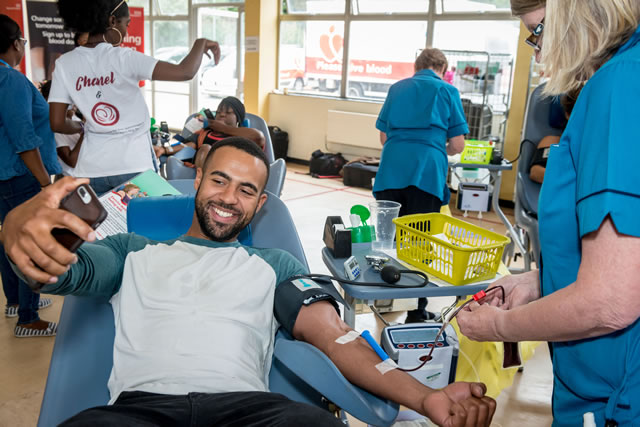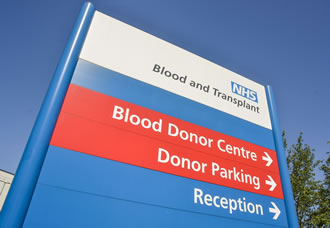Call for Male Blood Donors in London
New figures show twice as many women as men became New Year donors

NHS Blood and Transplant is urging men in London to match women in making becoming a blood donor their New Year’s resolution for 2019.
New figures today (10th January) reveal more than twice as many women as men in the county became New Year blood donors in 2018.
Figures show that last year 1,545 women in London who registered in January became blood donors, compared to only 821 men (between 1 Jan 2018 – 31 Oct 2018), despite male donors being more likely to have blood that can be used for some products such as platelets and allogeneic serum drops to treat people with dry eye conditions, as serum made from the blood of male donors could be better for the ocular surface than from female donors due to the different hormones present in the serum.
Donors of every gender are welcome, and men and women can have the same blood groups. However, men’s blood can contain fewer antibodies against red and white blood cells because women often make these antibodies during pregnancy. This means male blood is often more suitable for creating blood products used to treat patients. Men also generally have higher iron levels than women, so they are less likely to be deferred from donating due to low haemoglobin.
NHS Blood and Transplant has been analysing donor recruitment trends and is now working on reaching more male potential donors. Factors affecting male donor recruitment are thought to include the recent greater use of social media campaigns, which are more popular with women.

Mike Stredder, Director of Blood Donation for NHS Blood and Transplant, said: “It’s vital that more men start donating blood because their blood is used to provide life-saving products like plasma and platelets – to save victims of burns, car crashes and treat to patients with cancer.
“We’re incredibly grateful to all our female donors in London who are vital in providing lifesaving blood to those in need. But we need men to catch up with recent recruitment because their blood can have different characteristics which can make it important in certain situations.
“It’s more likely that we can use men’s blood to stop bleeding after injury or surgery. A recent study has shown that fewer men are scared of donating blood than women, so I would appeal to them to step up and be part of an already amazing group of people who have kept their resolution to give blood.”
By the second week in January, most people have broken their new year’s resolutions, but NHS Blood and Transplant is asking people, and especially men, to follow through on their commitment and give blood this year.
Moni Dhanjal from Surrey, made it her New Year’s resolution in 2017 to give blood along with her mum, Susie. The pair book appointment slots five minutes apart at Tooting Donor Centre, which is near to Susie’s workplace.
21-year-old Moni said: “At the start of the year we decided that 2017 was the year to give blood! You could say it was a new year’s resolution. Registering online was easy and we booked appointments for that April. Both mum and I are big believers in giving blood. It’s such a worthwhile thing to do.”
There are more than 81,000 active blood donors in London – and over 22,000 of these currently give blood at our brand new West End donor centre on Margaret Street. A further 8,600 donate at Tooting donor centre at St George’s hospital.
Giving blood is quick and easy and just one donation can save or improve the lives of three people desperately in need of a blood transfusion.
Mike Stredder added: “Across England, 830,000 people gave blood in 2018. This year, we are asking residents in London make a resolution that makes you feel amazing and saves lives.We know lots of people often make a new year’s resolution to give blood, but many don’t keep it. We need those who have taken the first step and registered to give blood to keep that resolution and make an appointment to donate at one of our London donor centres. There are blood donation sessions held across the city regularly, but the donor centre is likely to have more appointments available in the mornings, evenings and at weekends.”
More than 200,000 new donors are needed to give blood every year across England to replace those who can no longer donate regularly due to things like ill health, foreign travel or pregnancy.
It is quick and easy to make, view and change appointments by calling 0300 123 23 23, using the GiveBlood app, or going online at www.blood.co.uk
January 10, 2019
Related links
|